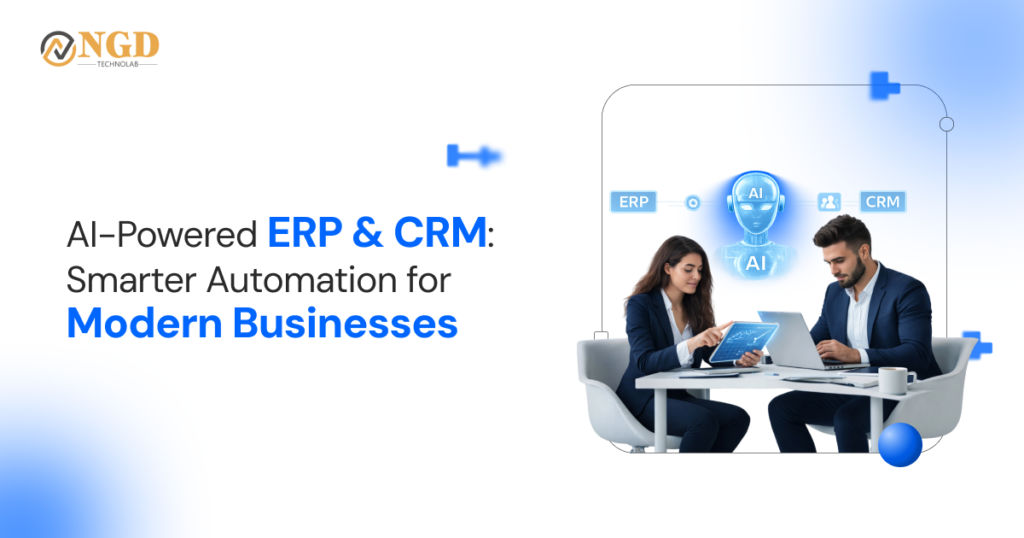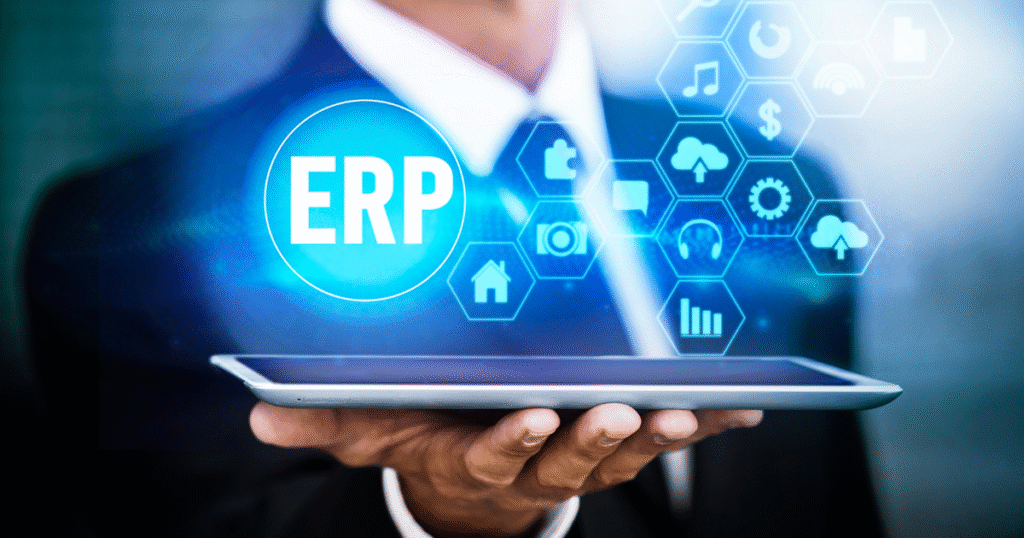Cloud-Based ERP vs On-Premise ERP Which is Better in 2025?
-
Harshid Patel

Enterprise Resource Planning (ERP) systems are the backbone of modern businesses. They bring together different processes like finance, HR, supply chain, sales, and customer management into one system. But when it comes to choosing ERP, businesses often face a tough decision: Cloud-Based ERP or On-Premise ERP?
In 2025, companies are not only looking for powerful ERP systems but also those that are cost-efficient, flexible, and future-ready. This blog will compare both ERP options, explain their pros and cons, and help you choose the right one for your business.
1. What Is Cloud-Based ERP?
A Cloud-Based ERP is hosted on the vendor’s servers and accessed via the internet. Businesses subscribe to it monthly or yearly and don’t have to worry about hardware or server management.
For example, solutions like Oracle NetSuite, SAP Business ByDesign, and Microsoft Dynamics 365 allow businesses to start quickly without huge upfront costs. Cloud ERP is particularly popular among startups and mid-sized businesses because it gives flexibility to scale as they grow.
2. What Is On-Premise ERP?
An On-Premise ERP is installed directly on a company’s internal servers. The business pays for a license, sets up the hardware, and manages everything in-house.
Traditional ERPs like SAP ECC or Oracle E-Business Suite fall into this category. While it gives companies full control and strong customizations, it also requires heavy investments in IT teams, hardware, and ongoing upgrades.
3. Key Differences Between Cloud ERP and On-Premise ERP
Deployment and Accessibility
- Cloud ERP: Can be accessed from anywhere with the internet, making it ideal for remote and hybrid work models. Employees working from home or different locations can log in easily.
- On-Premise ERP: Tied to office servers. Remote access is possible but requires extra infrastructure, which adds cost and complexity.
Cost Structure
- Cloud ERP: Works on a subscription basis. You pay as you go, which reduces the financial burden on startups and SMEs.
- On-Premise ERP: Involves a high upfront cost for servers, licenses, and installation. While it may save money in the very long term, the entry cost is high.
Security and Compliance
- Cloud ERP: Leading cloud providers offer built-in firewalls, data encryption, and compliance certifications like GDPR and ISO. Data is often safer than in small in-house setups.
- On-Premise ERP: Companies have complete control over data security, which is useful for industries with strict compliance rules like banking or defense. But responsibility for updates and backups lies fully on the company.
Customization and Flexibility
- Cloud ERP: Easier to set up and use but may offer limited deep-level customization. However, vendors are improving flexibility with APIs and integrations.
- On-Premise ERP: Highly customizable to meet unique business needs. However, customizations can take months and make updates more difficult.
Maintenance and Support
- Cloud ERP: Maintenance, upgrades, and patches are handled by the vendor automatically. This reduces the workload for internal IT teams.
- On-Premise ERP: Internal teams handle everything, from troubleshooting to upgrades. This gives control but also increases ongoing costs and effort.
4. Benefits of Cloud-Based ERP
- Quick deployment: Can go live in weeks instead of months.
- Cost-effective: Lower upfront investment with predictable monthly costs.
- Remote accessibility: Perfect for businesses with distributed teams.
- Automatic updates: Always running on the latest version with new features.
- Easy scalability: Add new users or features as your business grows without extra hassle.
5. Benefits of On-Premise ERP
- Complete control: Companies own the system, data, and infrastructure.
- Better customization: Can be deeply tailored for industries like manufacturing, banking, or government.
- Regulatory compliance: Helpful where strict data laws prevent storing sensitive data on third-party servers.
- One-time investment: After the initial cost, businesses may save if they plan to use the system for many years.
6. Which ERP System Suits Startups vs Enterprises?
- Startups and SMEs: Cloud ERP is a clear winner. It’s affordable, easy to use, and reduces the need for large IT teams. It also supports quick scaling, which startups need.
- Large Enterprises: On-Premise ERP may still be chosen when strict security or compliance is required. However, many big firms in 2025 are moving towards hybrid models — keeping sensitive processes on-premise and using cloud ERP for flexibility.
7. ERP Trends in 2026
- Hybrid ERP: Many companies are mixing cloud and on-premise ERP to get the best of both worlds.
- AI and Automation: ERP systems now use AI to predict trends, automate tasks, and give better insights.
- Cloud-First Strategy: Even large enterprises are adopting cloud ERP to cut costs and improve agility.
- Mobile ERP: Accessing ERP through smartphones is becoming a must for real-time decision-making.
Conclusion
Choosing between Cloud ERP and On-Premise ERP in 2025 depends on your business size, budget, and long-term goals. Cloud ERP is easier to start, more flexible, and ideal for companies that want fast setup and remote access without heavy IT costs. On the other hand, on-premises ERP gives more control, deeper customization and is still preferred in industries with strict data rules. Many growing companies are now adopting a hybrid ERP model to balance agility and data control. Before deciding, think about how fast you want to scale, how much you want to spend on maintenance, and how important data control is for your business.
Frequently Asked Questions
Cloud ERP is better for most businesses because it is easy to scale, has lower setup costs, and supports remote access. On-Premise ERP is better only if the company needs full data control or has strict security rules.
Yes. Modern Cloud ERP systems use encryption, secure servers, and regular security updates. They also follow global standards like ISO and GDPR to keep data protected.
Startups choose Cloud ERP because it requires no heavy investment in hardware or IT staff. It can be started quickly and grows as the business grows.
A company should choose On-Premise ERP when it needs full control of its data, requires deep customization, or works in industries like defense, healthcare, or government where data privacy rules are very strict.
The biggest trend in 2026 is Hybrid ERP, where companies use both Cloud and On-Premise systems together to balance flexibility and security.
Get Free consultation and let us know about your custom web and Mobile App project idea

Over 14+ years of work experience, we have built 210+ web and mobile apps
We can help you with
- Dedicated Developer
- delivering high-quality development
- Custom Mobile App Development
- Innovative Solution For Startups and Enterprise
Latest Blogs
Explore the Latest Blogs on Trends and Technology.





